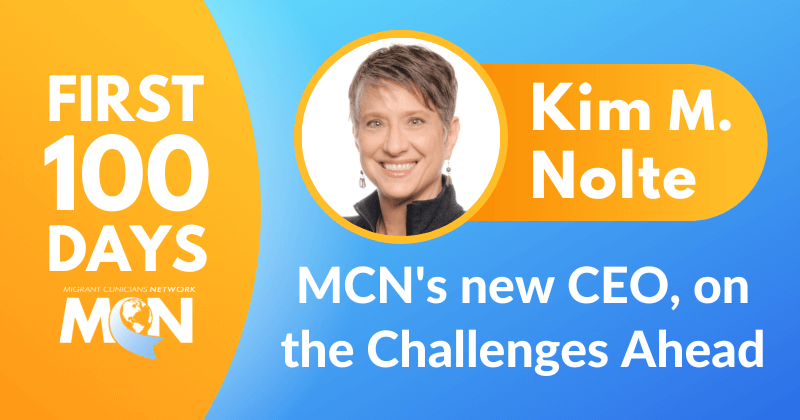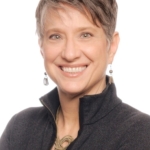First 100 Days: Kim M. Nolte, MCN's new CEO, on the Challenges Ahead

[Editor’s Note: Welcome, Kim! Our new CEO, Kim M. Nolte, MPH offers perspectives on Migrant Clinicians Network through this mini-series of blog posts during her first 100 days. Here is her first installment.]
Migration has never been more complex. Recent projections estimate that migration is growing rapidly as a result of climate disasters like hurricanes, tornadoes, floods, droughts, and wildfires. These deadly emergencies, which affect every corner of the planet, are only going to grow in frequency and severity. Simultaneously, here in the Americas, changes in migration policy, increased political instability and gang violence, and growing wealth inequality further wreaks havoc on the livelihood of millions of people, particularly those who were already low-income and struggling.
As I enter my second month as Migrant Clinicians Network’s Chief Executive Officer, I am grateful for the incredibly insightful and forward-thinking work of my colleagues and our vast national network of partners, who are considering the intricate and long-lasting effects of the climate crisis, in combination with the many other forces at play, on migration.
For example, a heartbreaking story of an eight-year-old migrant child who was killed by dairy farm equipment recently made national news. His father wanted to migrate to the US for work, presumably so he could support his family better than he could in his country of origin, Nicaragua. He had heard that single men were being turned away at the US-Mexico border, while parents with young children were often allowed into the country, pending their asylum hearing. This father, with hopes of supporting his family, brought his son along, unaware of the dangers that would result in his son’s death.
There are so many layers to this tragedy – border policy, agricultural worker safety and health including in living quarters, health care access, language justice -- and Migrant Clinicians Network is working rapidly and unceasingly to address many of these key concerns in migrant health. In recent weeks, I have learned of MCN’s long history of work in equipping dairy farm workers with resources and train-the-trainer materials to help workers understand their rights and how to stay safe when working in some of the most dangerous jobs in the country. I’ve encountered MCN’s efforts to keep children out of the fields. Of course, MCN continues to be a leader in language justice, pushing for greater accessibility of health materials that are linguistically and culturally sensitive and at appropriate reading levels. MCN regularly advocates for increased migrant health care access, and isn’t willing to just voice the concern, but will step in and build practical, real, long-lasting solutions. One example is our Health Network that was launched specifically because the health needs and continuity of care of mobile populations weren’t being met. MCN saw the injustice and created a virtual case management program that helps migrants with ongoing health needs to find care at their next destination.
I’m proud of the work that MCN is doing, and am looking ahead to the future. We have a lot of work ahead of us – and it’s important work that will save lives, and bend the trajectory of others’ lives toward health and safety, and away from fear and danger. I’d love to hear what our partners and supporters think of the road ahead in migrant health as we continue to fight for health justice, especially in light of continued migration and climate changes. Feel free to drop me a line: knolte@migrantclinician.org.
- Log in to post comments
